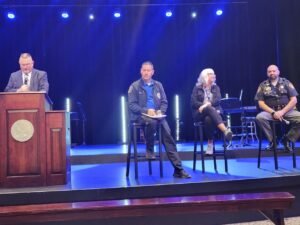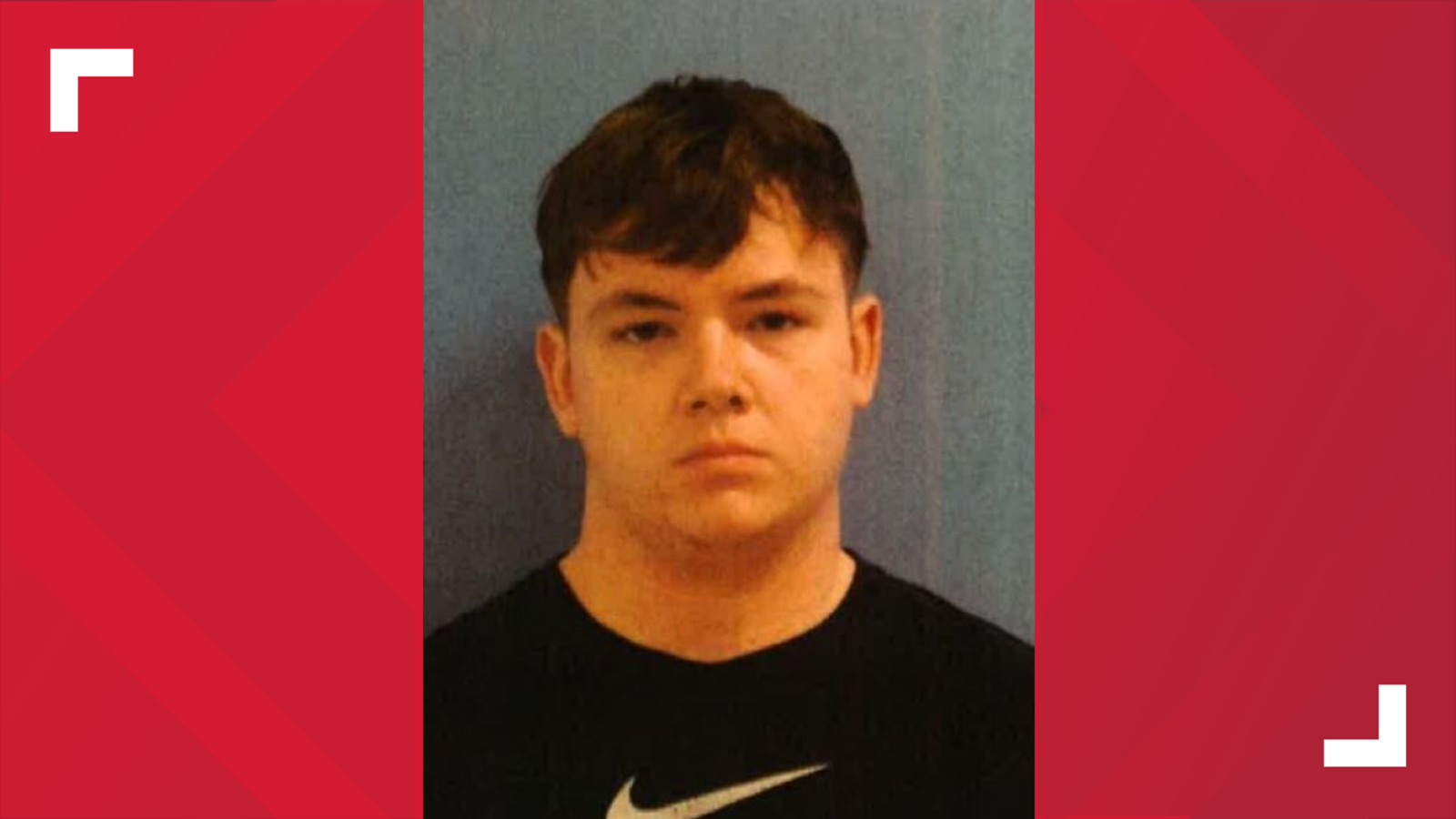The Critical Role of School Resource Officers in Combating Drug Use Among Students

By
Taiwo AKINLAMI
At the “Drug Education Training” held in October 2024, local school resource officers (SROs) shared their firsthand experiences in dealing with the growing drug problem in schools. The panel discussion, titled “Hidden in Plain Sight: A School Resource Officer’s Role in Drugs in Schools,” provided invaluable insight into the challenges faced by educators, parents, and law enforcement in combating drug use among students. The panel featured experienced officers like Deputy Shawn Clark from Clark County, Officer Julie Reston, and Officer Tim Temple, all of whom have dedicated their careers to working with children and addressing substance abuse in schools.

Changing Trends in Student Drug Use
Opening the panel, the officers highlighted how adolescent drug use has evolved over the years. Despite self-reported reductions in alcohol and cigarette use, the officers are seeing an uptick in the misuse of prescription drugs, particularly Xanax and other anxiety medications. Officer Clark noted that students often misuse prescription medications intended for their parents or other family members. “We’re seeing kids getting access to drugs right from their homes, and many don’t even understand the potential harm,” Clark said.
Officer Reston added, “While alcohol use among students has decreased in our schools, prescription drug misuse has become a more common concern. We seldom see alcohol cases anymore, but Xanax and other prescription medications are something we are dealing with frequently.”
Officer Temple echoed these concerns, citing how drug dealers now target students with THC products packaged to look like everyday snacks. “The marketing is dangerous. Kids don’t even realize the potency of the drugs they’re consuming, and it’s all packaged in a way that looks harmless—colorful, playful designs that appeal directly to a younger audience,” Temple explained.

The Vaping Epidemic: A Growing Concern
One of the biggest topics of discussion during the panel was the rise in vaping, particularly with THC products. Officers across the panel agreed that vaping has become the new frontier of substance abuse among students. Schools are installing anti-vaping sensors in bathrooms, but the officers noted that this alone isn’t enough to solve the problem. “We’ve got vape detectors in the restrooms, but the students are getting smart. They’re vaping in the hallways, classrooms, anywhere they think they won’t get caught,” Officer Temple shared.
The challenge with vaping, the officers explained, is that it’s marketed differently than traditional cigarettes. The flavored options and sleek packaging make it more enticing and less intimidating than traditional smoking. “Kids see it as something fun—something fruity or sweet—rather than something harmful,” Officer Reston said.
In response to the growing vaping crisis, schools are employing innovative approaches, including mandatory intervention programs. Officer Temple described how students caught vaping are required to attend a therapy program, where they receive counseling and education on the dangers of vaping. “We have to get to them early and make them realize it’s not just harmless fun. It’s an addiction, and it can have long-lasting effects,” he said.
Parents’ Role in the Struggle
Another key issue discussed was the role of parents in either supporting or unintentionally enabling their children’s drug use. Officer Temple recalled a shocking instance where a parent brought a THC vape pen to the school for their child, seemingly unaware—or uncaring—about the legal and health implications. “Parents are sometimes part of the problem. I’ve had parents tell me they can’t afford prescribed medication, so they let their kid vape to ‘calm down,’” Temple explained.
Officer Reston added that many parents are overwhelmed or unaware of the dangers their children face. “Parents don’t always understand the potency of what their kids are using. They think it’s just water vapor when, in reality, these kids are inhaling highly concentrated doses of THC or nicotine,” she said.
This issue of parental involvement—or lack thereof—was echoed by all panelists. In many cases, grandparents or single parents are left to raise children and may not fully understand the modern drug landscape. Officer Clark highlighted the generational gap that often exists, with older caregivers not realizing that today’s drugs are far more potent than what they might have encountered in their youth.
Educational and Intervention Programs
Despite the challenges, the officers expressed hope through the educational and intervention programs currently in place. The Drug Abuse Resistance Education (DARE) program, which has been a staple in schools for decades, continues to play a significant role in building relationships between officers and students. Officer Temple shared that he has graduated over 1,200 students from the DARE program and believes that it’s crucial for early intervention. “It’s about building trust with these kids. They need to know that we’re here to help, not just to discipline them,” Temple said.
In addition to DARE, schools have implemented partnerships with local health departments and social workers to provide resources for students struggling with substance abuse. Officer Reston explained that her district has a social worker dedicated to drug intervention, and students caught vaping are required to meet with her as part of their disciplinary process. “We don’t just punish them and move on. We give them the tools they need to make better choices in the future,” she said.

Looking to the Future
The panel concluded with a discussion about the future of drug prevention in schools. The officers agreed that tackling the problem will require a collective effort from parents, educators, and law enforcement. Officer Clark emphasized that more resources are needed to support overwhelmed juvenile court systems and schools. “We’re all trying our best, but we need more support from higher up to truly address the issue at its core,” he said.
Officer Temple added that while progress has been made, schools must continue to adapt their approaches as drug trends evolve. “We can’t afford to throw our hands up. This is an ongoing battle, and we’ve got to keep working at it,” he concluded.
As the fight against student drug use continues, the dedication of school resource officers like Clark, Reston, and Temple provides a beacon of hope. Through early intervention, education, and collaboration, they are on the front lines, ensuring that Ohio’s schools remain safe and drug-free environments for students to learn and grow.

Taiwo AKINLAMI is the Curator-in-Chief of the S.A.F.E for Children® Information Bank, Ohio, a project of power parenting Company LLC (http://www.powerparentingcompany.com/)





